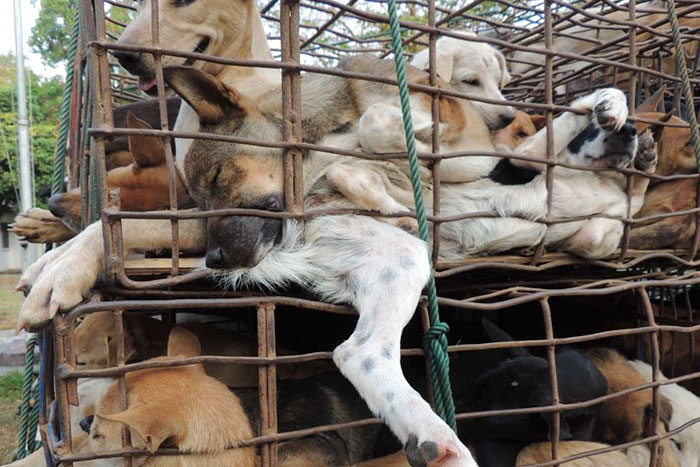Taiwan bans Dog Meat
April 13, 2017 | Expert Insights

On 11th April 2017, the legislature of Taiwan, made a landmark amendment to its animal protection laws by prohibiting the consumption of dog and cat meat.
What is the history of the consumption of meat in Asia?
Historically humans have consumed dog meat over the year. Evidence can be traced to countries in Asia, West Africa, Europe as well as Americas. Today Dog meat is mainly consumed in countries such as Korea, China, Vietnam, Thailand, Laos, Cambodia as well as Philippines. Despite international criticism and hue and cry regarding violation on animal rights, these countries continue to celebrate dog meat festival every year. It is reported that in China 10 million dogs and 4 million cats are slaughtered every year, according to Humane Society International. Also in South Korea, where dogs are farmed for human consumption, about 2 million are kept in about 17,000 facilities, and many are killed by electrocution. The country's law on the legality of the dog-meat only prevents violent killing of dogs but possess very little or no restriction on killing of the dogs per se. On the other hand, Taiwan has moved forward and imposed ban on slaughter as well as consumption of dog and cat meat.
What does the amendment impose?
The new amendment imposes steeper fines and lengthier punishments for all acts of animal cruelty. Consumption as well as sale any product containing dog and cat meat would be punished with fine 50,000 to 250,000 new Taiwan dollars (about $1,600 to $8,000). Any act of animal cruelty will be punished with a 2-year prison term along with a fine of 200,000 to 2 million new Taiwan dollars (about $6,500 to $65,400).
Assessment
Taiwan’s proactive step to protect animal rights sends a strong message to its Asian counterparts to reflect on their animal protection laws and encourages these countries to amend their laws. This move of the Taiwanese government has led to international attention towards dog meat market with animal rights activists and NGO’s condemning the same. This acts as additional pressure on countries like South Korea and China to amend their existing laws.








Comments